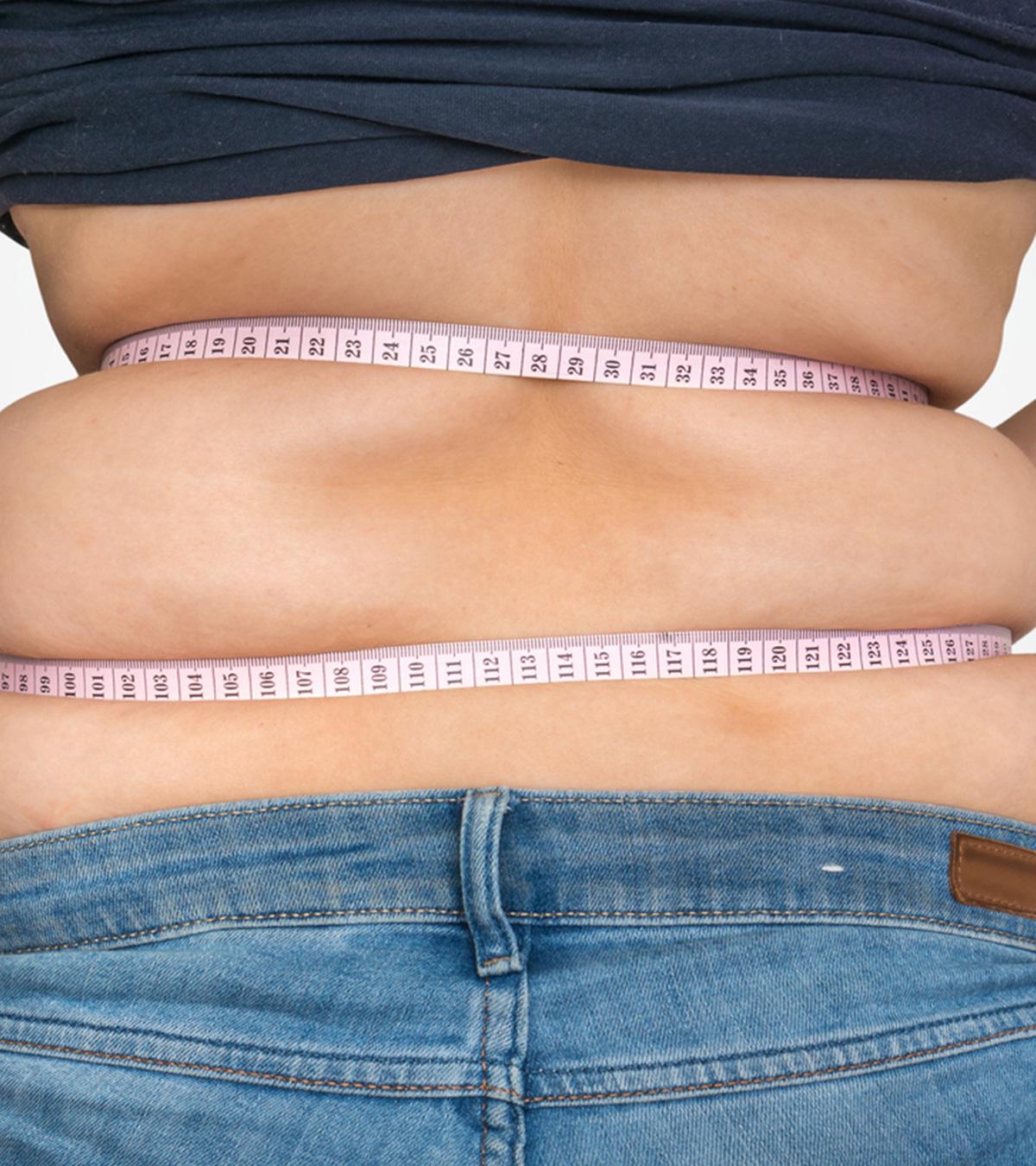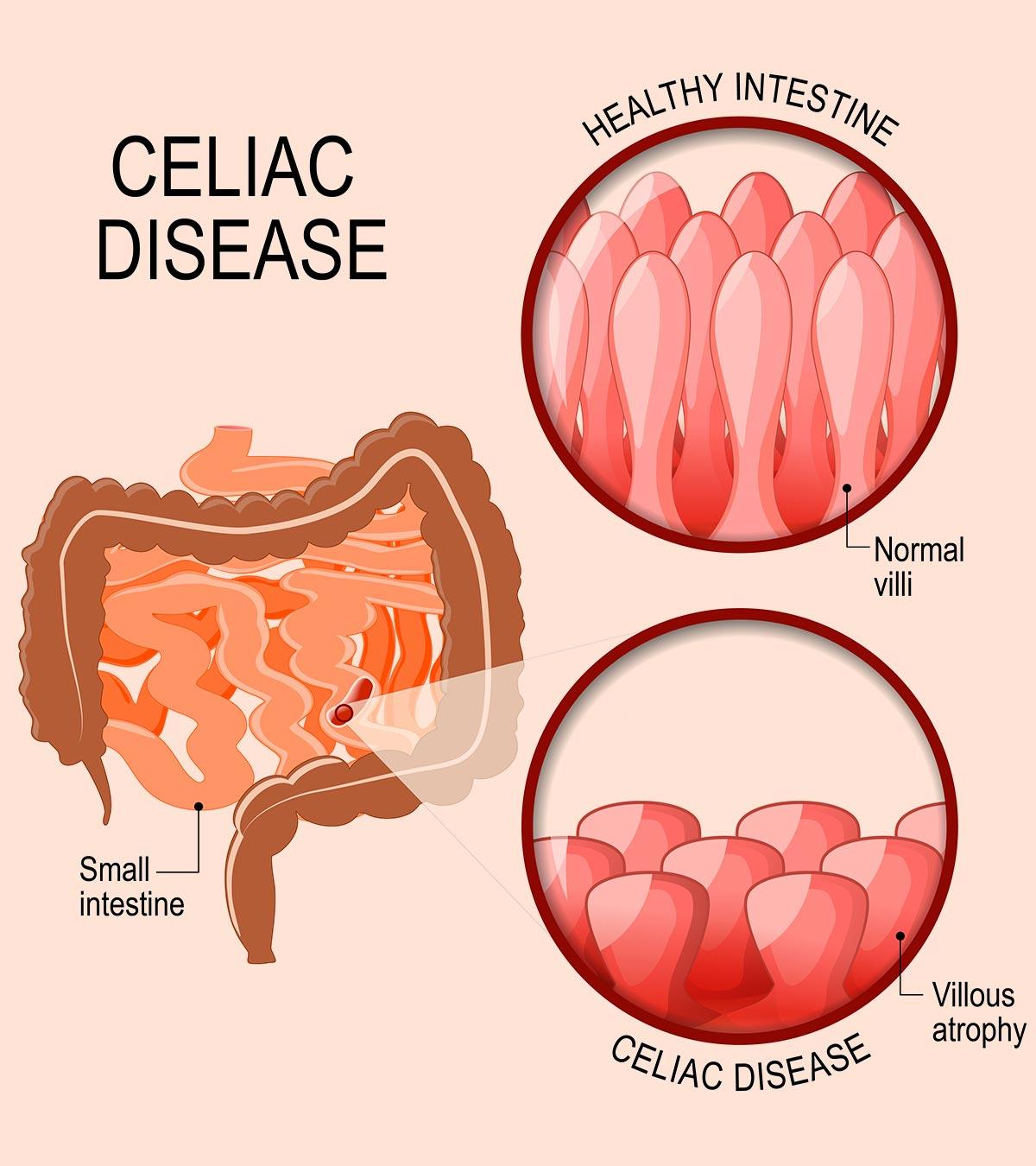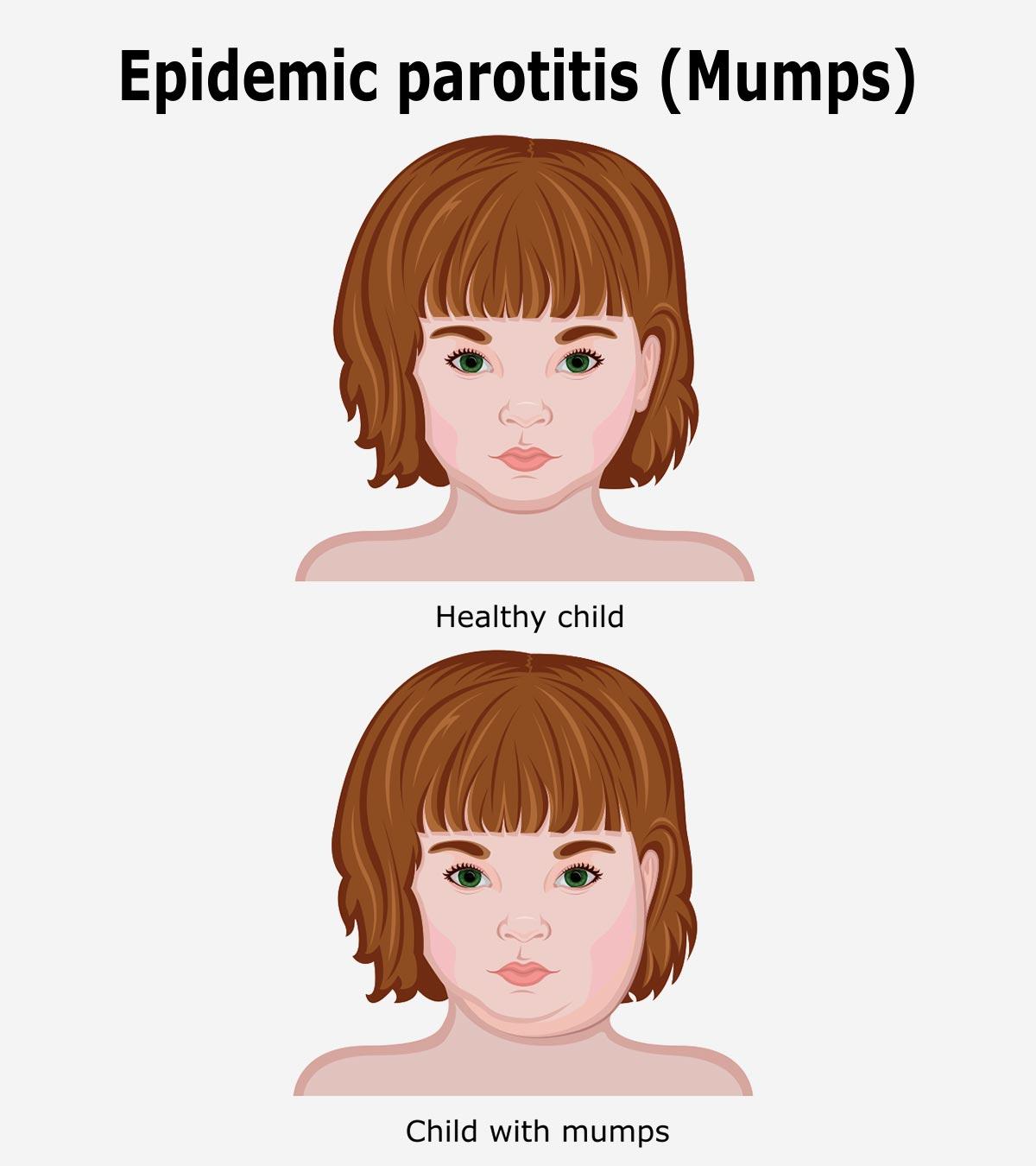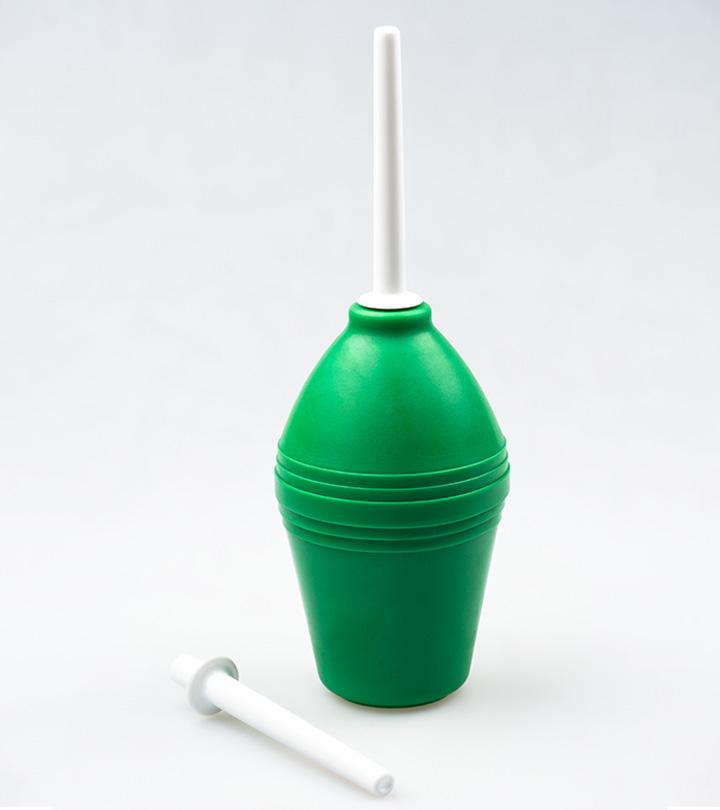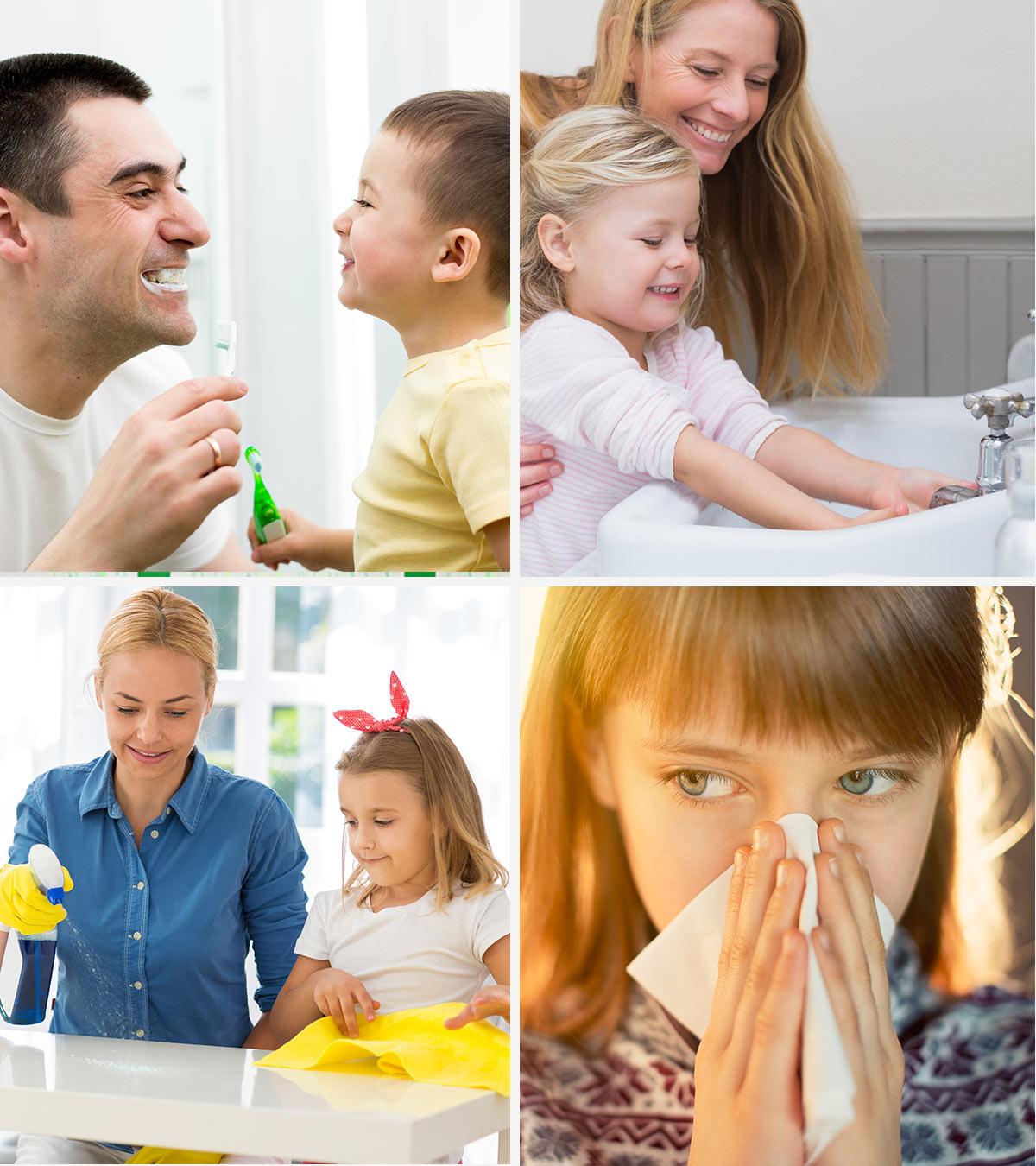
Halitosis or bad breath in children is common. It can originate from oral and non-oral sources; 87% of cases arise from an oral source, and 13% from non-oral sources (1).
Bad breath is alike in children and adults when they wake up in the morning because of increased bacterial activity in the mouth. However, morning breath is temporary and goes away after brushing the teeth and rinsing the mouth (2). If the child complains of bad odor at other times and when it is a persistent problem, you should bring it to the healthcare professional’s notice. Read this post to learn about the causes, treatment, prevention, and home remedies of bad breath in children.
Causes Of Bad Breath In Children
The following are some probable causes of bad breath in children (1) (2) (3):
1. Poor oral hygiene
Certain areas in the mouth, such as pits and grooves on the surface of teeth, areas between teeth and gums, or on the pores of the tongue, get trapped with food particles. The bacteria in the mouth degrade protein materials from these food remnants producing amino acids and offensive gases.
2. Decayed teeth
Image: Shutterstock
According to the WHO Global Oral Health Status Report (2022), an estimated 514 million children suffer from caries of primary teeth. Inadequate exposure to fluoride, one of the main reasons being the insufficient use of oral hygiene products like toothpaste, is considered a contributing factor. Tooth decay promotes an environment for bacterial growth, and the accumulation of food in these cavities leads to a foul smell from the mouth.
Tooth decay promotes an environment for bacterial growth, and the accumulation of food in these cavities leads to a foul smell from the mouth.
3. Dental abscess
There might be pus discharge from an abscessed tooth. Pus may lead to a foul smell from the oral cavity.
4. Periodontal diseases
Gingivitis is an inflammatory condition of the gums that may lead to smelly mouth in children. Plaque build-up is the main cause of gum disease. Improper removal of dental plaque may lead to a foul smell from the mouth.
5. Mouth breathing
Due to mouth breathing, the saliva may evaporate, and there is a loss of washing and self-cleansing action of the saliva. As a result, it increases microbial growth and causes a bad smell from the mouth.
6. Dry mouth
Dehydration, some salivary gland diseases, or certain medicines may reduce salivary production and bad breath.
7. Malocclusion
Malocclusion is characterized by crooked, crowded, protruding, or malpositioned teeth. Maintaining hygiene is more difficult for these teeth, and food particles might get stuck between the teeth. In addition, it leads to increased microbial growth and results in a bad smell from the mouth.
8. Orthodontic appliances
Improper cleaning of appliances such as braces, orthodontic retainers, space maintainers, or athletic mouth guards may lead to a build-up of odor-causing bacteria on the appliance and in the mouth
.
9. Poor dental fillings
Improperly done amalgam or composite restorations cannot be cleaned well by a toothbrush or floss, especially in the interdental areas. It may lead to food impaction and a bad smell from the mouth.
10. Foreign body in the nose
Foreign bodies such as peas, beans, or small parts of toys stuck in the nose may lead to infection and bad breath.
11. Tonsils
Image: Shutterstock
Infected tonsils in children have a cauliflower-like appearance, and there may be food lodgement occurring in the grooves that appear on its surface. In addition, it may lead to bad breath in children.
12. Medical conditions
Certain health complications such as mouth sores, asthma, enlarged adenoidsiA patch of tissue behind the nasal cavity that forms a part of the lymphatic system , diabetes, kidney failure, liver problems, or oral cancer may cause foul oral smell
.
13. Infections
In children undergoing chemotherapy for cancer, fungal infections may occur and can lead to bad breath. In addition, a sinus infection or a stomach infection may also cause bad breath.
14. Certain medicines
Certain drugs for treating allergies, insomnia, and mental disorders, such as antihistamines, tranquilizers, and phenothiazines lead to a reduction in salivary production. As a result, it leads to foul oral odor. Likewise, unnecessary and excessive use of antibiotics reduces oral bacterial load and results in fungal infections and foul odor.
15. Dietary changes
Some food items such as garlic, onions, or other spices have a strong smell. After digestion and absorption of these food items, the strong-smelling molecules enter the bloodstream and exhale from the lungs while breathing, causing bad breath.
16. Stress and anxiety
Stress and anxiety in children may have more than just mental effects; it may also impact their oral health. Research indicates that heightened stress levels may result in reduced saliva production. With less saliva, the mouth becomes a breeding ground for oral bacteria, paving the way for tooth decay, gum disease, and bad breath (4). It was found that cortisol, the primary human stress hormone, affected the production of the major gases responsible for bad breath (5).
17. Smoking
Smoking affects
the composition of bacteria in the plaque, leading to a foul smell.
 Be watchful
Be watchfulHome Remedies And Prevention Of Bad Breath In Children
Regular brushing, flossing, and dental checkups are required to establish optimum dental health. They prevent bad breath in children. Start brushing the child’s teeth when the first tooth appears to make them used to brushing. Use a soft baby toothbrush. Apart from them, the following measures can help minimize bad odor from the oral cavity (6) (7) (8).
- Ample hydration helps flush oral debris and thereby prevents bad breath.
- According to the Centers for Disease Control and Prevention (CDC), replace the toothbrush once in two to three months or sooner if the bristles look worn out (9).
- Clean the child’s tongue gently using a tongue scraper or cleaner.
- Use commercially available kid-friendly mouthwashes, or you may make them at home by mixing one cup water, one teaspoon of baking soda, and a drop of peppermint oil. Ensure the child does not swallow the mouthwash.
- Consuming salads and fresh fruits inhibit bad breath and aid in self-cleansing.
Image: Shutterstock
- Chewing on a sprig of parsley, mint, or herbs such as basil may help neutralize bad breath.
- Use a humidifier to help prevent nasal and oral dryness in the child’s room.
- Cut down caffeinated and sugary drinks, such as coke and coffee.
- Remove the removable orthodontic appliances every day and clean them well per your pediatric dentist’s instructions.
 Point to consider
Point to considerTreatment For Bad Breath In Children
The following treatment plans may be suggested depending on the underlying cause.
- Get the recommended regular dental scalingiA dental procedure involving the removal of plaque and tartar from teeth and below the gumline once every six months.
Image: Shutterstock
- If the child is experiencing symptoms of gingivitis such as swollen or bleeding gums along with bad breath, an additional session of scaling and root planingiA restorative procedure to prevent dental damage by smoothing of roots of teeth and helping gums reattach can help get rid of the problem.
- If the child has cavities or other improper dental fillings, get proper fillings for your child.
- If your child exhibits mouth breathing, get them examined by an otolaryngologistiA doctor who specializes in ears, nose, throat, head, and neck to rule out enlarged adenoids or infected tonsils. Seek the doctor’s guidance if surgical removal is recommended (8).
Image: Shutterstock
- If the child seems dehydrated, ensure immediate medical attention. You can read more about dehydration in children
- Consult an orthodontist if you think your child has misaligned teeth and associated bad breath.
- If you notice pus discharge from the nose, contact emergency medical care.
- If the child exhibits any signs of infection, complete the entire course of antibiotic treatment as advised by the doctor.
 Caution
CautionFrequently Asked Questions
1. How long does it take for bad breath to go away in kids?
Children’s common bad breath after waking up can go away right after they brush their teeth and eat something. However, bad breath arising from an underlying condition such as infection, tooth decay, or gingivitis needs appropriate treatment and may go away when the cause is eliminated (7).
2. Can lemon cure bad breath?
Yes, chewing on lemons or drinking lemon juice can help manage bad breath because the vitamin C in lemons prevents the bacteria from thriving in the mouth (11).
3. Do probiotics help with bad breath in kids?
Yes, probiotics such as the Lactobacillus species are believed to help treat bad breath occurring in the mouth or oral cavity without any underlying condition. This may be due to the property of probiotics to combat bacterial colonization (12).
Bad breath can cause problems with self-esteem, self-confidence and may also lead to bullying in children. In most cases, they may not be aware of the bad smell. The healthcare provider will investigate the underlying cause and refer to a specialist accordingly.
Infographic: How To Manage Or Prevent Bad Breath (Halitosis) In Children?
Halitosis is a common concern in children that may occur for several reasons, from poor oral hygiene and dental problems to certain illnesses. However, following certain tips can help manage and prevent bad breath. Check out the infographic below to learn about these home management tips for bad breath in children.
Illustration: Momjunction Design Team
Key Pointers
- Children frequently experience bad breath caused by various factors.
- Possible causes of bad breath in children include poor oral hygiene, mouth breathing, dental decay, tonsillitis, and other infections.
- Simple practices, including consuming fresh food, drinking plenty of water, using mouthwashes, and avoiding caffeinated beverages, can help prevent bad breath.
- It is recommended that children visit a dentist every six months to address underlying health issues and treat bad breath.
Image: Dalle E/MomJunction Design Team
Does your child have bad breath from time to time? Watch this informative video to learn about some surprising reasons why this may occur.
References
- G.S. Madhushankari, et. al.; (2015); Halitosis – An overview: Part-I – Classification, etiology, and pathophysiology of halitosis
https://www.ncbi.nlm.nih.gov/pmc/articles/PMC4606616/ - The Causes of Holitosis in Children
https://www.omicsonline.org/open-access/the-causes-of-holitosis-in-children.php?aid=86743 - What Causes Bad Breath in Kids?
https://hurstpediatricdentistry.com/2020/10/15/what-causes-bad-breath-in-kids/ - How Stress May Affect Your Oral Health
https://www.rivermarkdental.org/blog/how-stress-may-affect-your-oral-health/ - Effects of stress hormones on the production of volatile sulfur compounds by periodontopathogenic bacteria
https://pubmed.ncbi.nlm.nih.gov/24918364/ - Bad breath
https://www.nhs.uk/conditions/bad-breath/ - Bad breath
https://raisingchildren.net.au/guides/a-z-health-reference/bad-breath - Bad or Changed Breath
https://www.mottchildren.org/health-library/sig258649spec - Martijn P. C. Van Leeuwen, et. al.; (2018); Toothbrush wear in relation to toothbrushing effectiveness
https://www.ncbi.nlm.nih.gov/pmc/articles/PMC7379636/ - Gingivostomatitis.
https://my.clevelandclinic.org/health/diseases/21771-gingivostomatitis - 5 unexpected benefits of drinking lemon water daily
https://blog.swedish.org/swedish-blog/5-unexpected-benefits-of-drinking-lemon-water-daily - Nansi López-Valverde et al. (2022); Role of Probiotics in Halitosis of Oral Origin: A Systematic Review and Meta-Analysis of Randomized Clinical Studies
https://www.frontiersin.org/articles/10.3389/fnut.2021.787908/full
Read full bio of Dr. Elna Gibson
Read full bio of Rebecca Malachi
Read full bio of Vidya Tadapatri








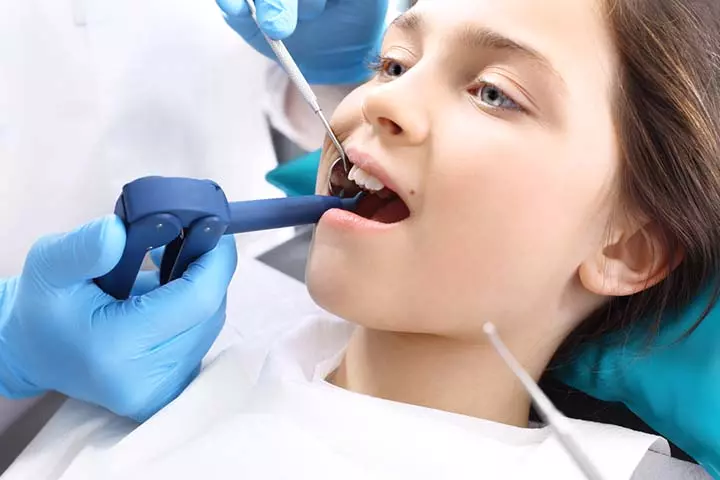
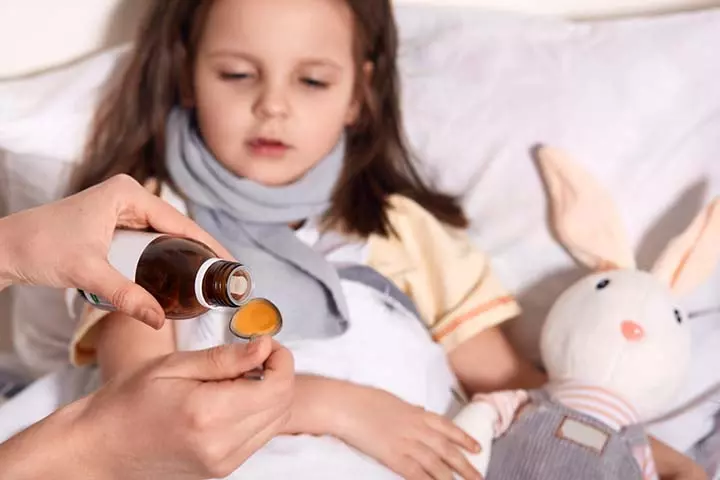

_in_children_and_remedies_illustration.jpg.webp)



